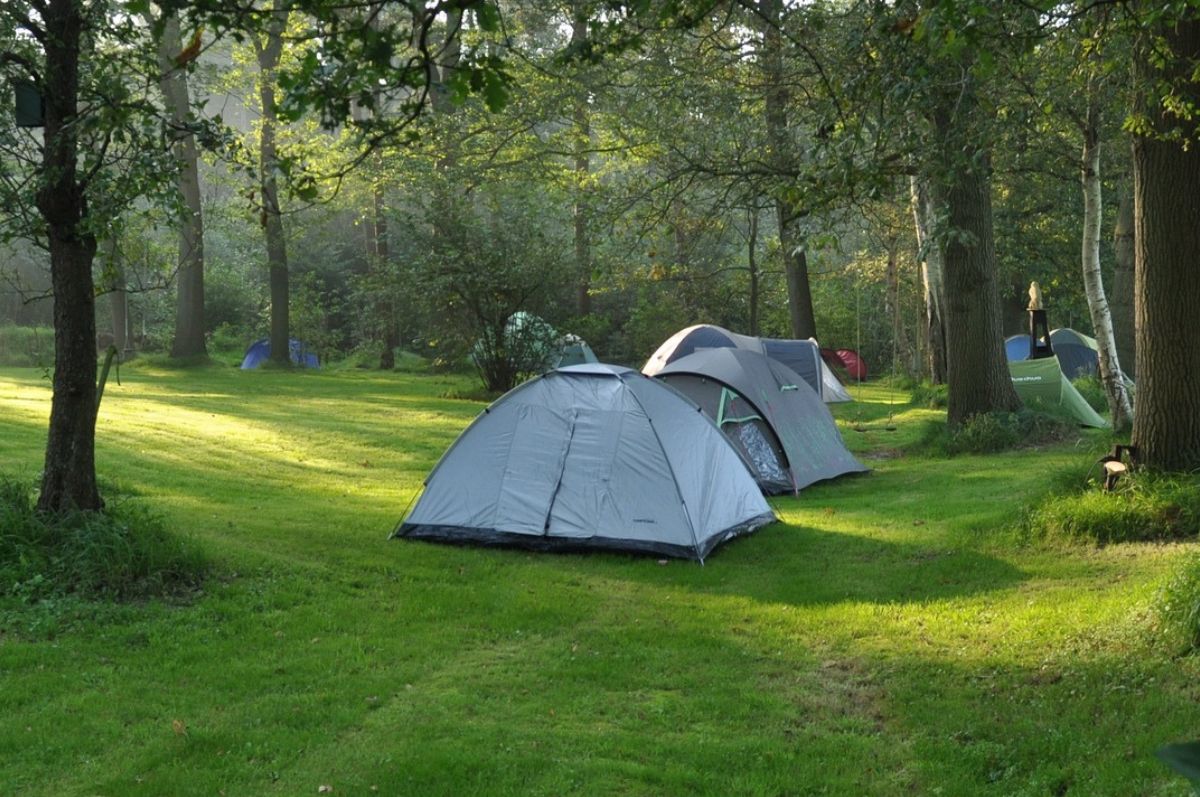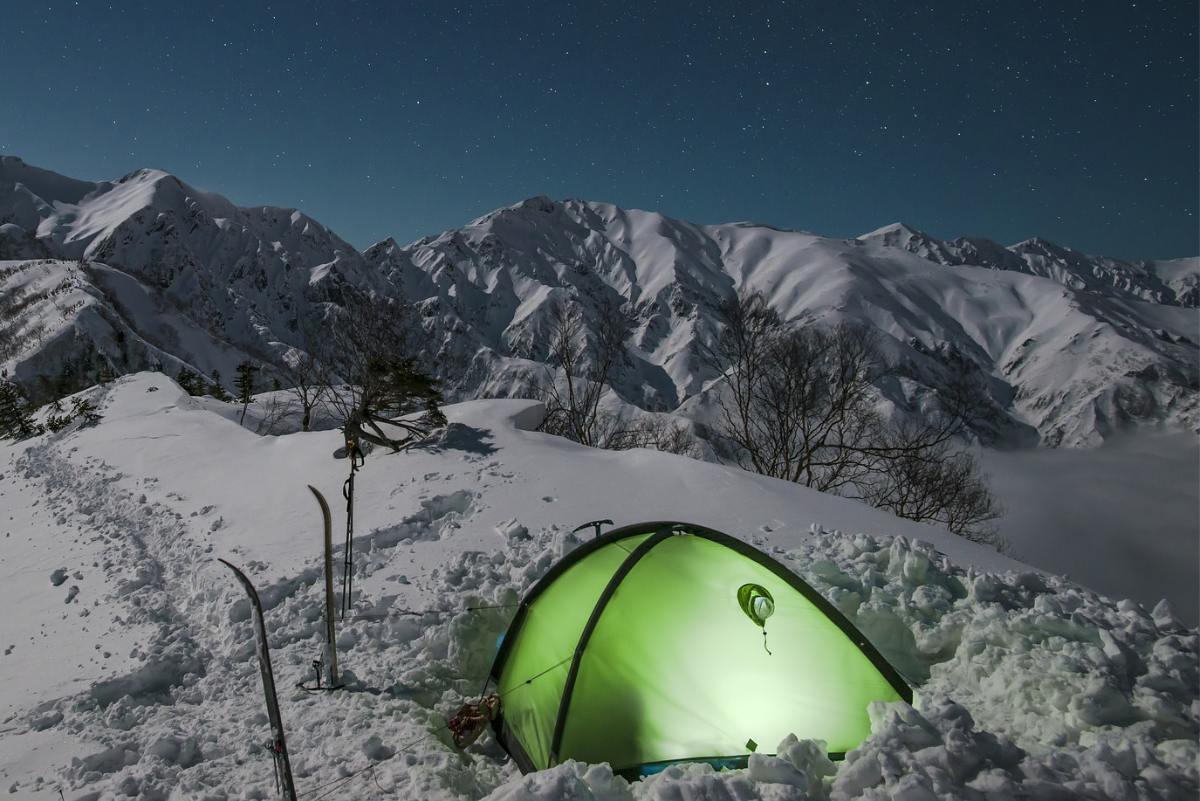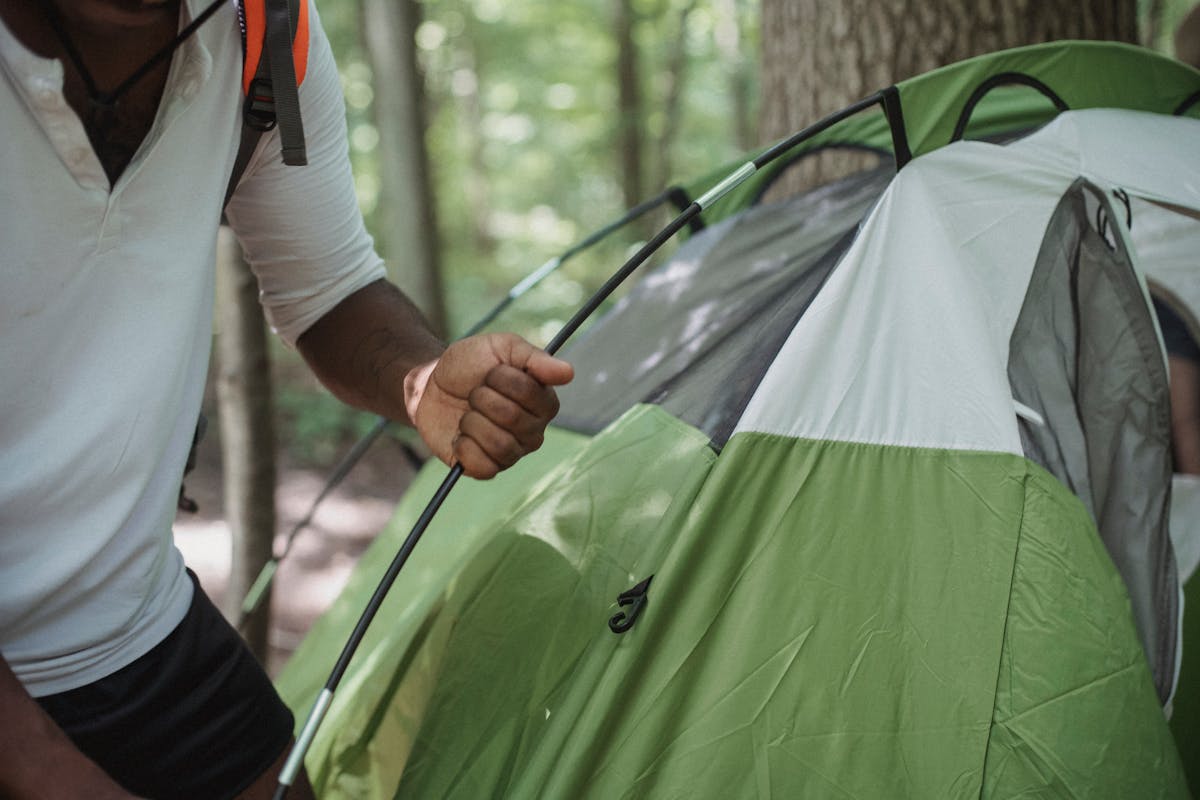Guide to Buying a Camping Tent: How to Choose the Best One
 What to look for when buying a tent?
What to look for when buying a tent?
Choosing the right camping tent can make or break your outdoor adventure. This tent buying guide will provide you with the essential tips you need to consider before making a purchase. Whether you're looking for a bigger vestibule for extra storage or added privacy, this guide will help you choose a tent that suits your needs.
With so many options available, it's important to know what to look for. From tent size and capacity to materials and construction quality, we cover all the key factors. By following these tips, you’ll be well-equipped to find the perfect tent for your next camping trip. Enjoy the comfort and convenience of a well-chosen tent, and make your outdoor experience unforgettable.
Tent Size and Capacity
When choosing a camping tent, size and capacity are important criteria. It's important to know that a tent labeled as a "four-person tent" might only fit four people snugly in their sleeping bags next to each other. This doesn't give much room for other camping equipment or stuff. For a comfortable experience, consider getting a tent with a capacity larger than the number of campers. For example, a family of four should look for a six-person tent. This extra space allows room for bedding, clothes, and other essentials, making your camping trip more enjoyable. Always think about the height of the tent as well. Taller individuals need a tent with enough headroom to avoid feeling cramped.
Additionally, consider what you'll be storing inside the tent. If you have a lot of gear, you'll need more space. If the weather turns bad, having extra room can be a lifesaver, giving you enough space to move around comfortably. The more space you have, the better your camping experience will be. So, don't just think about how many people need to sleep in the tent, but also about the overall space needed for a comfortable stay.
Seasonality and Weather Resistance of the Tent

Choosing the right tent for different seasons and weather conditions is vital. In Australia, we have a range of climates, so it's essential to pick a tent that suits your camping style. A summer tent is lightweight and offers plenty of ventilation, perfect for those hot nights. For more versatility, a three-season tent is a good choice. It can handle rain and wind, making it ideal for autumn, spring and summer camping. If you're planning to camp in winter or harsher conditions, consider a four-season tent. These are built to withstand high winds. These tents are deisgned to keep you warm and dry.
Weather resistance is another key factor. Look for a tent with a good rainfly that covers the entire tent, including doors and windows. This will keep you dry during unexpected downpours. Waterproof ratings are also important. A higher rating means better protection from the rain. Additionally, check that the tent has strong, durable poles and secure seams to prevent leaks. No one wants to wake up in a puddle, so investing in a weather-resistant tent is worth it for a comfortable and dry camping experience.
Waterproof ratings are measured in millimeters (mm) and indicate how much water a fabric can withstand before it starts to leak. Here are some examples:
- 1,000 mm: This is the minimum rating for a fabric to be considered waterproof. It can handle light rain and showers, suitable for fair-weather camping.
- 1,500-2,000 mm: A good middle-ground rating. Tents with this rating can withstand moderate rain and are ideal for most camping trips in Australia.
- 3,000 mm and above: High waterproof ratings like these are great for heavy rain and harsher weather conditions. These tents provide excellent protection and are a good choice if you're expecting stormy weather.
Materials and Construction Quality
The materials and construction quality of a tent are crucial for a great camping experience. Choose tents made from durable fabrics like rip-stop nylon or polyester. These materials are lightweight and strong, perfect for the Australian outback. Canvas (cotton) tents are also a good choice. They are heavier but provide excellent insulation and durability. Ensure the tent has a waterproof coating and sealed seams to keep you dry during unexpected rain.
Check the tent poles and pegs. Aluminium poles are strong and lightweight, ideal for most conditions. Fibreglass poles are cheaper but can break more easily. Some family tents use the rigid steel poles for extra durability.
Ease of Setup and Portability

The last thing you want is a tent that's tricky to set up. Ease of setup is essential. Look for tents with colour-coded poles and quick-clip systems or the fast pitching tents. These features make pitching your tent a breeze, even if you're on your own. Instant or pop-up tents are also great options. They spring into shape with minimal effort, saving you time and hassle. Watching setup videos online can give you a good idea of how easy a tent is to assemble.
Portability is another key factor, especially if you need to carry your tent over long distances. Lightweight materials like aluminium poles and nylon fabric can significantly reduce the overall weight. Check the packed size of the tent to ensure it fits in your car or backpack without taking up too much space. Some tents come with convenient tent bags that make transportation even easier. A portable and easy-to-setup tent will make your camping trips more enjoyable and stress-free.
Ventilation Features for Comfort
For a comfortable camping experience, make suer the tent has good ventilation . Look for tents with plenty of mesh panels. These allow fresh air to flow through and keep insects out. Large windows and doors with mesh screens are ideal. They help reduce condensation inside the tent, keeping your gear dry.
Ventilation is especially important in hot weather. A well-ventilated tent will stay cooler and more comfortable. Check if the tent has vents near the top. These allow hot air to escape. Some tents also have adjustable vents you can open or close. Proper ventilation makes your tent a pleasant place to relax and sleep.
Tent Weight and Portability
Lightweight tents are easier to carry, especially if you need to walk a distance to your campsite. Look for materials like nylon and aluminium poles, which keep the weight down. Some tents are designed to be ultra-light for backpacking. These are great if you need to travel light.
Portability also means checking the packed size of the tent. Make sure your tent bag fits easily in your car or backpack.
Durability and Longevity of the Tent
Having a quality tent that is durable will last longer. You don't need to replace and buy a new tent quickly. A well-made tent will last through many camping trips. Look for tents made from strong materials like rip-stop nylon or polyester, these materials resist wear and tear. Canvas tents are also durable and provide good insulation, but they are heavier.
Price and Warranty Options
It's tempting to go for the cheapest option, but remember that quality often comes at a price. A more expensive tent is usually made from better materials and will last longer. Think of it as an investment in your comfort and safety while camping. Look for sales or discounts to get a good deal on a high-quality tent.
Check the warranty options before you buy. A good warranty shows that the tent manufacturer trusts their product. Look for tents with at least a one-year warranty. Some high-end tents come with 2-year warranties.
Quality of Tent Zippers and Seams
I've mentioned seams before. They are important because they keep water out and add strength to the tent. Sealed seams prevent leaks during rain, keeping you dry and comfortable. Look for tents with double stitching and tape-sealed seams. These features make the tent more durable and weather-resistant.
Zippers are also crucial. Quality zippers ensure the tent stays secure and keeps bugs out. Non-rusting zippers are best for longevity, especially in the outback's when you are camping in extreme conditions. Check that the zippers run smoothly and don't catch on the fabric. Good zippers and strong seams are key to a reliable and long-lasting tent.
Multiple Doors and Windows for Convenience
Multiple doors and windows make a tent much more convenient. With more doors, it's easier for everyone to get in and out without disturbing others. This is especially useful for families or groups. It also improves airflow, helping to keep the tent cool and comfortable.
Windows with mesh screens provide great ventilation and keep insects out. They let you enjoy the view while staying protected. Large windows also help reduce condensation inside the tent. Having multiple doors and windows enhances your camping experience by making the tent more accessible and pleasant to stay in.
Storage Options Inside the Tent
Storage options inside the tent are very handy. Some tents come with built-in pockets. These pockets help keep your gear organised and off the floor. You can store small items like torches, phones, and keys within easy reach.
Some tents also come with gear lofts. These are overhead storage nets that provide extra space for lighter items. Hooks and loops inside the tent are useful for hanging lanterns and other gear. Good storage options make your tent more organised and comfortable, helping you keep track of your belongings during your trip.
Tent’s Groundsheet and Flooring Quality
The groundsheet and flooring quality of a tent are essential for a good camping experience. A strong floor protects you from moisture and cold ground. Look for tents with thick, durable materials like reinforced nylon or polyester for the floor. These materials resist wear and tear, ensuring your tent lasts longer.
Using a footprint under your tent adds an extra layer of protection. A footprint is a separate piece of fabric that sits between the ground and your tent floor. It helps prevent damage from sharp objects and keeps your tent clean. A good quality floor and groundsheet keep you dry and comfortable, making your camping trip more enjoyable.
Final thoughts
Choosing the best tent for your camping adventures is all about knowing your needs and doing a bit of research. Tents range in size and offer various features to suit different camping styles. Remember, it's important to keep in mind things like capacity, weather resistance, and ease of setup. Whether you need a tent for a solo trip or a family outing, there's a perfect tent out there for you.
Don't forget the practical aspescts: Good ventilation helps manage moist air inside the tent, reducing condensation. Look for tents that fold away easily and have durable flooring to handle wet or muddy conditions. By considering these factors, you'll be well-prepared to enjoy your camping trips with comfort and convenience.
Frequently asked questions when buying a tent
What to do when you buy a new tent?
When you buy a new tent, set it up at home first. This helps you check for any defects and understand the assembly process. Make sure all parts are included and practise pitching it. This way, you’ll avoid any surprises or difficulties when you’re out camping.
Do you need to waterproof a brand new tent?
Yes, it’s a good idea to waterproof a brand new tent. While many tents come pre-treated, additional waterproofing ensures better protection. Use a waterproof spray on seams and fabric. This extra step helps prevent leaks and keeps you dry during unexpected rain.
How can you tell if a tent is good quality?
You can tell if a tent is good quality by checking its materials and construction. Look for durable fabrics like rip-stop nylon or polyester, strong aluminium poles, and reinforced stitching. Sealed seams and quality zippers are also important. Reading reviews and testing the tent before camping can help ensure its quality.

